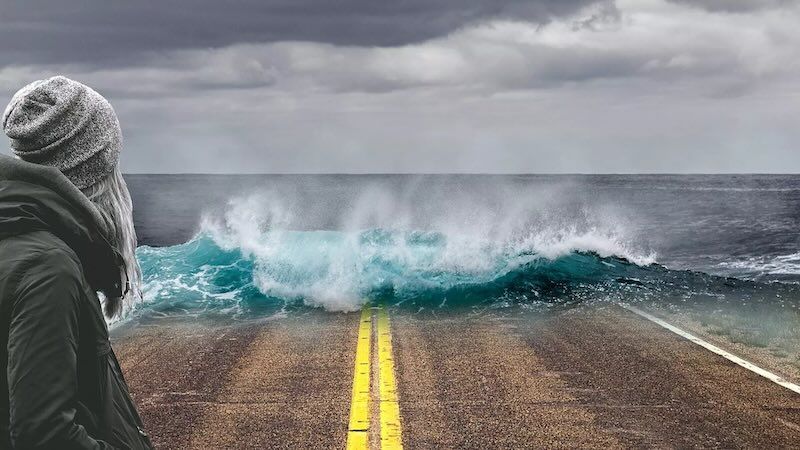Robert Romanyshyn
Dreaming Impossible Dreams in End Times

My book, Victor Frankenstein, the Monster and the Shadows of Technology: The Frankenstein Prophecies, is written for that wider audience that has been shaped and influenced by the advances in technology over the last 30 years. Woven around eight questions drawn from Mary Shelley’s novel the format of my book opens a place to pause between an unquestioned embrace of technology and a naïve rejection of it.
The art of the question is the work of psychotherapy. In the 40 years I have practiced this art as a Jungian and existential psychotherapist, it has become increasingly evident that the boundaries between the private domain of soul and the public domain of nature are two sides of the same coin. Not only are we webbed within a digital global network, we are webbed within the multiple crises we face whether they appear as the weakening of our political, economic and social institutions. Or more tellingly as the ecological dangers that truly are global.
At a very elemental level every single one of us is being addressed by the pollution to the air we breathe, the water we drink, the destruction of the rain forests, and the thinning of the ozone layer. Riffing on the English poet John Donne, let us not ask for whom the bell tolls, because it tolls for all of us.
In this context of shared and mutual concerns, it is appropriate and necessary to become aware that we are all patients whose personal suffering is mirrored in the sufferings of nature and in the systemic quality of injustice, poverty and discrimination. Indeed, there is – I believe – an overarching question that feeds this awareness. It is a question that percolates as an undercurrent of anxiety within a fear-based news cycle, which not only continuously bombards our waking hours, but also disturbs our sleep.
Are we living now in end times?
In a 24/7 wired world, we are webbed into a way of being where these global concerns are the very fabric of our day to day lives. In this context, the boundary between a general audience and a specialist one is porous. Victor Frankenstein, the Monster and the Shadows of Technology: The Frankenstein Prophecies is for anyone who feels these concerns and who senses the dangers of continuing to ignore our global state of imbalance with the natural world. It is for anyone who is troubled by the loss of any sense of the sacred and its rituals, by the erosion of the local place of communities and neighborhoods, by the increasing absence of civility in our encounters with each other, by the way in which a utilitarian ethic sanctions greed as a means to any end, by the increasing incapacity to appreciate the ordinary epiphanies of beauty that bind our embodied sensual ties to the miraculous display of the sensuous world, and by the fraying of the generational bonds that tie each of us to those who have come before us and those who are on the way.
If we are indeed living in end times, then it is time to become an engaged citizen, time to protest in ways that utilize your gifts, to speak out, to resist, and perhaps most of all to become in our daily even simple acts memory keepers and guardians of homecoming for a human scaled world that is slipping away. We all have stories to share about these concerns. If we are living in end times the time is right to tell our tales. Indeed, if we are living in end times now the time is right to dream a new dream of us and the earth, of us and the gods, of us and all of creation.
The time is now to dream impossible dreams.
If you enjoyed this article by Robert Romanyshyn, you may enjoy setting off on a journey into the depths of the soul of the world. In his course Reflections on Ecology and Soul, Robert takes us to those places where nature, psyche, technology and humans meet.
Share
Robert Romanyshyn
Robert D. Romanyshyn is an Emeritus Professor of Clinical Psychology at Pacifica Graduate Institute, an Affiliate Member of The Inter-Regional Society of Jungian Analysts, and a Fellow of the Dallas Institute of Humanities and Culture. He is also a Core Faculty Member at Jung Platform.
Other blog posts

Jung Platform is an online education space that offers a range of depth psychological and spiritual perspectives. Our courses and talks explore the journey of life with guidance from highly regarded teachers.
We are passionate about offering practical, life-enhancing tools and opportunities to connect with others on this path. Our aim is to help people connect to their own soul, so they can live more fully and colorfully.
Stay inspired.Get our magical updates.
Thank you for signing up!
FEATURED LINKS
-
Headquarters in Salt Lake City, Utah
-
info@jungplatform.com
-
Copyright © 2026
